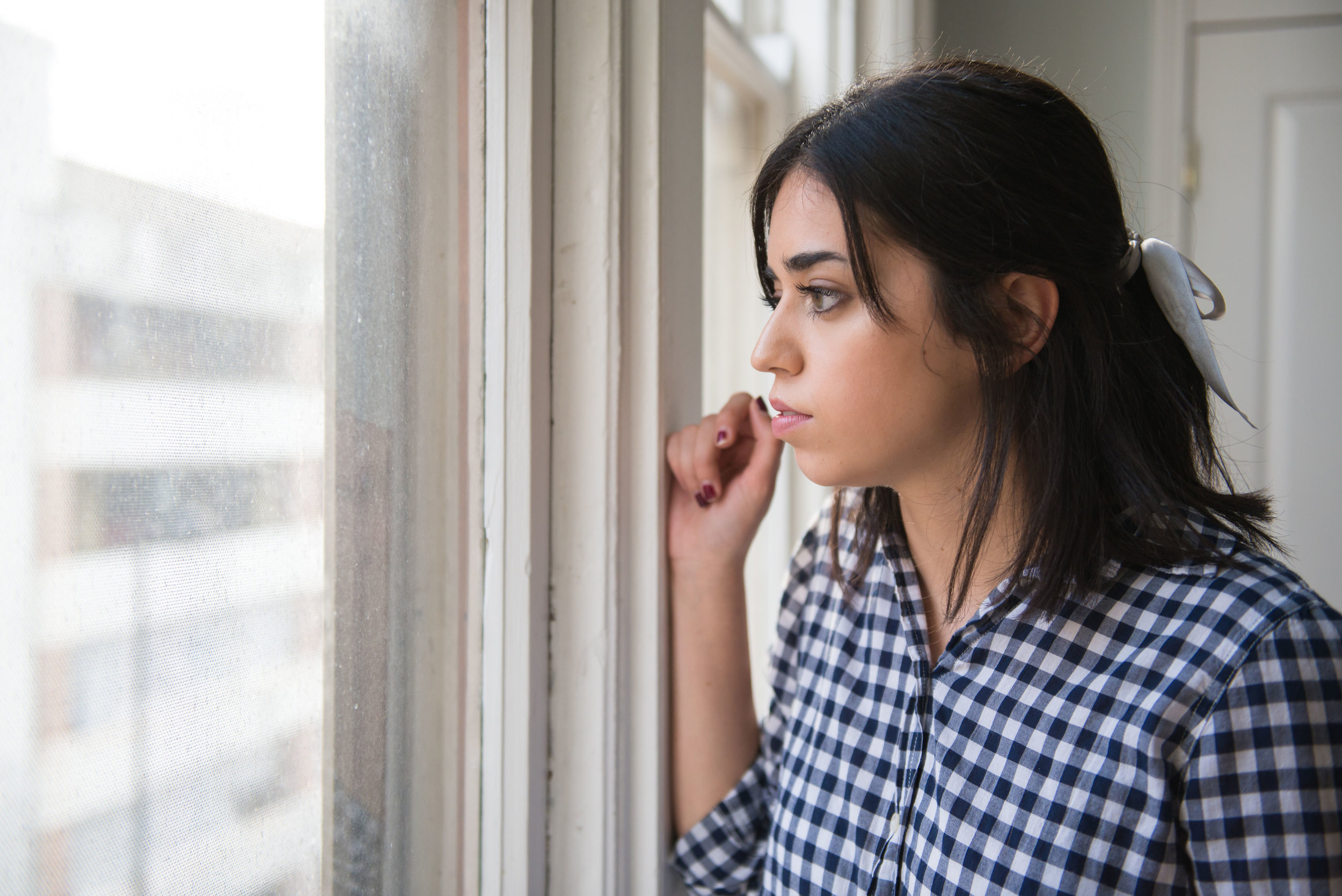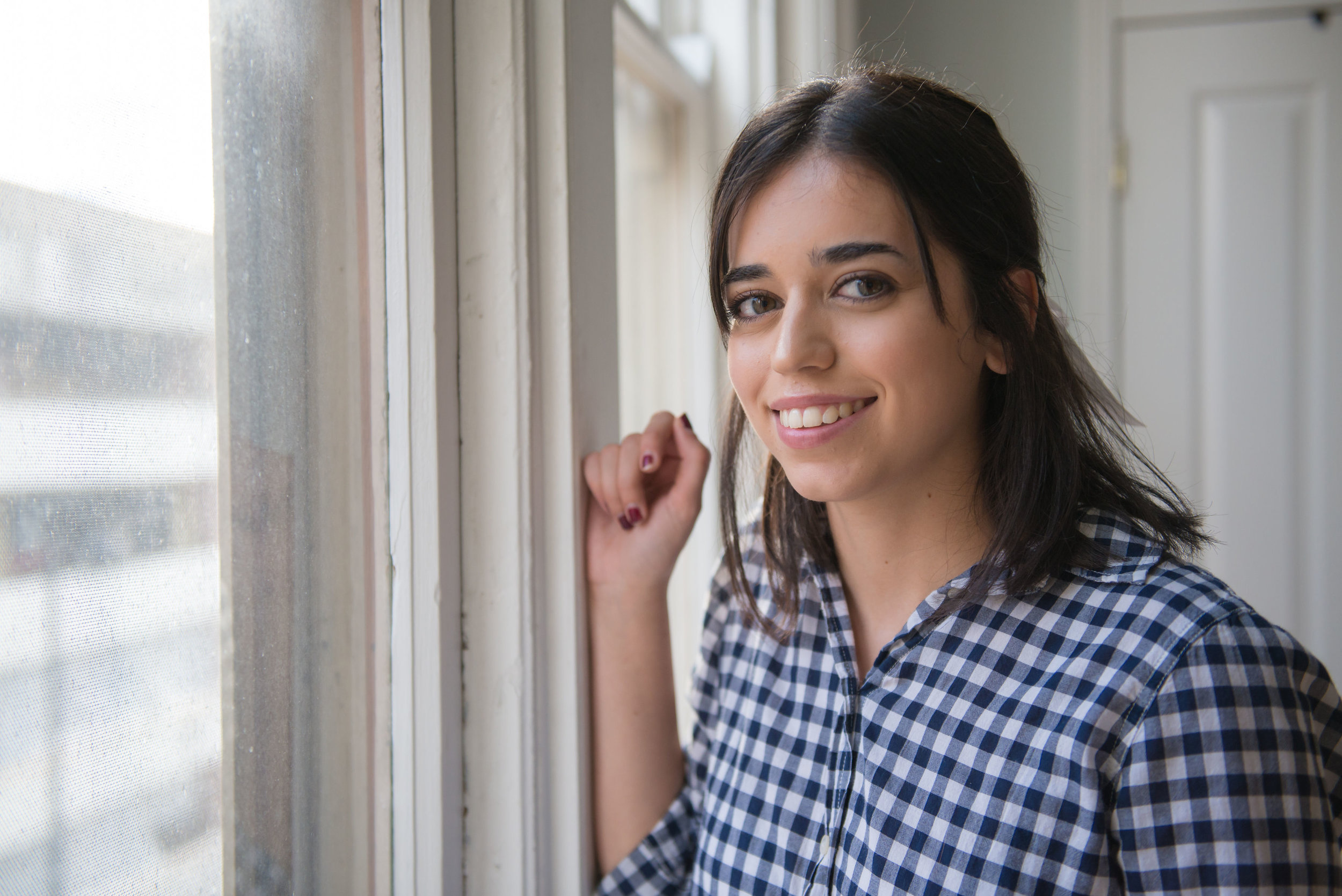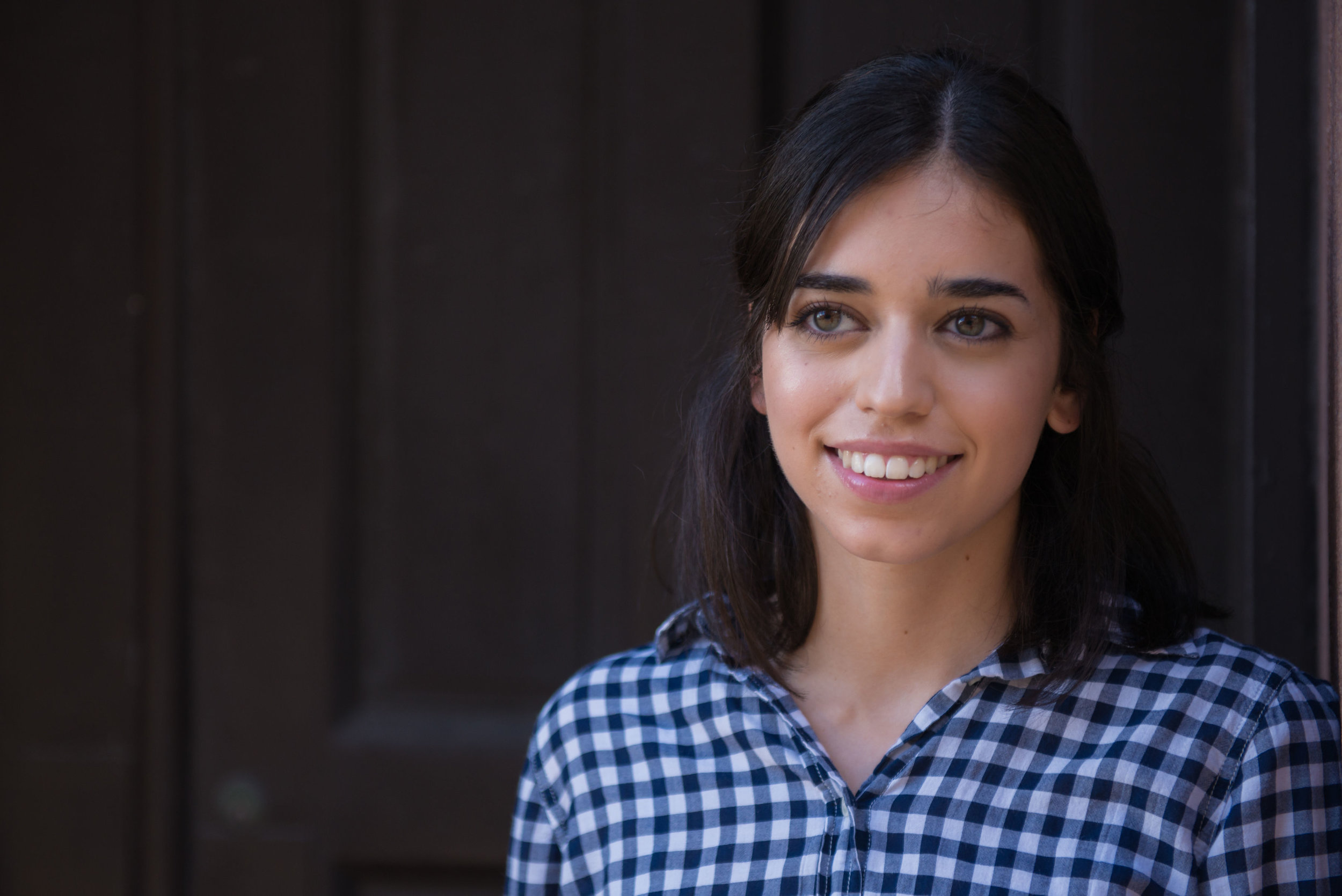‘We were the young people’: Rasleen Krupp on Youth, Activism, and Change
On February 14, 2018, a 19-year-old gunman opened fire at Stoneman Douglas High School in Parkland, Florida, killing 17 students and faculty and injuring 17 others. Rasleen Krupp and her classmates at Wyoming High School watched as media outlets reported on the tragedy at a school not unlike theirs.
At just 18, Rasleen is already a political activist with an impressive list of accomplishments. She has spoken in front of thousands at Cincinnati’s Women’s March. She organized the walkout at her high school, joining thousands of other schools as they raised their collective voices to memorialize those killed in Parkland and protest for stricter gun control legislation. And she formed The Young Activists Coalition (formerly Young Feminists Coalition) to offer a place for young people to get involved. That coalition organized the March for Our Lives; is planning “March Again! The Next Generation”; and continues to hold events to educate and give a voice to teens.
We met near City Hall weeks after her 18th birthday to talk about activism, politics, and getting ready for college.
Interview by Kyle Schott. Photography by Stacy Wegley.
Women of Cincy is an apolitical organization dedicated to giving a voice to women of all beliefs. We encourage our readers to have open minds, make informed decisions, and be engaged in their community.
How did you decide to “get involved?”
When Trump got elected, that’s when I kind of started paying attention. Even then, I read some headlines, but I wasn’t very interested. Then I turned 17, and it kind of hit me that I was going to be voting in a year and I had no clue about anything. I couldn’t even tell you who was on my City Council. I couldn’t even tell you who our senators were. That kind of stressed me out because I hate doing stuff that I’m not super informed on.
First I just started Googling stuff, but I quickly realized that doesn’t really help you – because you can list all of the senators of the entire United States off the back of your hand; that doesn’t mean you know anything, you know?
So I decided I was gonna try and get involved. I volunteered for a city council campaign – just like, the first one that I found – and it was fun, as much as campaigns are a lot of doors slammed in your face and a lot of phones hung up on you... I sort of realized this was something that I was really, really passionate about; that I was really interested in; and also really good at.
Did it change how you saw the world?
I grew up in a bubble. Like, that’s the nickname for my town – it’s “the bubble” – because we are this perfect American suburb. You know, two kids and a golden retriever. I didn’t even think about what was happening in the other areas of Cincinnati. It’s so easy to ignore suffering.
I had direct encounters with people who actually experience those problems. That opened up my world.
When I volunteered for that City Council campaign, we were canvassing in Northside. Northside isn’t even that bad of an area but it was still... It was kind of a shock to me. I mean, honestly, before this campaign, I didn’t know there was an opioid crisis in Ohio – which is crazy, you know, but it’s just a lack of awareness. Campaigns are the way that I got directly into the issue. I had direct encounters with people who actually experience those problems. That opened up my world and showed me that people were suffering so much. I was really unaware.
Why did you form the Young Activists Coalition?
In working on that local campaign, it introduced me to a woman who ran United We Stand. She gave me the idea of forming a youth group. The thing about United We Stand is that it’s a great organization, but they’re not young. Even the younger groups were primarily [in their] 20s and 30s, and I thought there should be somewhere for teens to get involved. So we started Young Feminists Coalition, and it was kind of one of those single-issue groups, and our issue was women’s rights.
We ended up changing our name after the March for Our Lives. Feminism is definitely something we cared about, but we also cared about so many other issues that we wanted to address. Since this group was an outlet for young people to have a voice, we didn’t want their voice to be constricted to a single issue.
How did you end up speaking at the Women’s March?
I didn’t even know I was speaking until the night before. I was gonna be like a “runner-up” and – I don’t even know the full story – but they called me and they’re like, “Oh by the way, you’re speaking tomorrow.”
It was my first big profile speech. I just got up there like, “If I make a fool of myself in front of thousands of people, that’s gonna suck, but that’s also the worst that can happen.”
It’s easy to speak out to people who support you. The more difficult thing is speaking out to people who don’t support you, which I realized when I started dealing with gun violence. That’s when I started talking to people who hated everything I was saying. The first interview I did – and maybe this was bad thinking on my part – was to the local Fox News channel. They had a live stream of the interview and it got, I mean, there were some really bad comments. It got to the point where the newscaster was like, “Some people need to think about what they’re saying before they comment on this random girl.” That’s definitely more difficult.
How did activism around gun violence enter the picture?
Well, February 14, the Parkland shooting happened. Gun violence really struck a chord with me because it was something that affected me directly. I’m the one that goes to school every day. My peers are the ones who go to school every day. We sit in a classroom and we know that 17 people got gunned down February 14 and that can happen at any second in any school. That’s a threat to our lives.
And that’s when we realized that this was something we had to address. This was a call to action to young people, and we were the young people. We might not have been very established, but we were the ones that had to stand up. Now looking back, I’m like, “Oh my god, why did I take that on?” I had no experience whatsoever. But I didn’t even think about it, you know? I was just like, “Someone needs to step up to the plate and take action.”
We sit in a classroom and we know that 17 people got gunned down February 14 and that can happen at any second in any school. That’s a threat to our lives.
This is actually kind of a funny story: At first I was like, “An adult needs to take over.” So I posted on United We Stand and was like, “Is anyone planning a March for Our Lives?” And they’re like, “You should plan it. You’re the young person.”
So in addition to the March for Our Lives, we’ve done a lot of different events: a town hall on gun violence, an informational panel on immigration, rallies against gun violence in front of Rob Portman’s [office]. Our next event is going to be “March Again! The Next Generation,” which advocates for feminism in a youth-led, intersectional way. And while the march is totally youth-led and encourages youth leadership, everyone in the community is welcome to attend. Community organizations will have tables set up where you can sign up to get involved. It will be at Sawyer Point on January 19, 2019, from 11-2.
Gosh, I love thinking about that moment of you asking, “Who’s gonna do this?” and realizing that it can and should be you.
I was in D.C. over the summer for the Young Women Leadership Program, and they told us that men will think they’re overqualified for something and women will think they’re underqualified. Probably the most important thing that program taught me is that no one has any clue what they’re doing.
You organized the walkout at your school. Was it a no brainer to raise your hand because you were running the coalition that was organizing the March for Our Lives?
Well, I hadn’t really done anything within my own school. But because we had started planning the March for Our Lives I was like, “If I can plan a march with thousands of people, this will be no sweat” – which was not true at all.
I was the first one to email my principal about it. I was like, “These walkouts are happening. We want to walk out. I’ll work with you on this, but just know that if you choose to not work with us, we’re gonna walk out anyways.” It was one of the first times that I had to be like an actual diplomat. My idea was to go into our auditorium and have speeches. I’ve always thought that if you can’t vote, you can use your voice. And then we had another group that wanted to just walk out for 17 minutes. And both are very valid, but I was thinking, you know, 600 people can’t keep quiet for 17 minutes. It’s just not gonna happen. It’s not impactful if people go outside and are quiet for maybe a minute and then start talking about what’s happening on the math test or who they’re taking to prom.
We ended up going with a compromise, which was 15 minutes in the auditorium for speeches and then a minute of silence outside. We had nearly the entire student body walk out, which is pretty insane, and then a lot of teachers came, too. I think it was really impactful.
When it comes to your peers, does the work you’re doing isolate you or does it connect you?
Both. Definitely both. I always kind of blended in at my school. I never stood out before all this politics stuff. Now there are people at my school who don’t want to say hi to me in the halls. They look the other way. They ignore all my stuff. But all the people that I care about in my life support me immensely. All my friends support me immensely. My parents and I disagree majorly on politics, but even still, they show up to all my events and always tell me, “You can do anything you ever want to do.”
How have these experiences changed how you want to participate in the world?
I think I’ve honestly found my life path. It’s something that combines all my strengths and all my passions into one. So I definitely think it’s my place in the world. Personally, I would love to be Senator one day. It’s my dream. But even if I don’t get there, I want to run for office. I want to help people. I want to be involved in the world of politics.
Do you feel like your activism is hitting its mark and creating the change that you want to see?
I wouldn’t say that my work – like me, personally – is going to create all this change. But I think collectively – especially like the March for Our Lives, when we saw all these young people rise up and take this call to action – it’s hitting the mark.
My parents and I disagree majorly on politics, but even still, they show up to all my events and always tell me, “You can do anything you ever want to do.”
Gun control is still a hot topic, and I think part of the reason for that is all these young people involved. The Parkland students aren’t gonna give up. We’re not gonna give up. We see groups like Students Demand Action continue to lobby and protest and do all these things to continue putting pressure on the politicians who make these decisions. So I think that while my work personally – I mean, I’m not gonna be able to influence the president or the Senate. My work combined with everyone else’s work is gonna make the impact that it needs to make.
Are you excited about going to college?
I’m excited, but at the same time I’m super nervous. I think that always happens, though. I’ve lived in Cincinnati my entire life. I’ve done so much here and I’ve built up so much here that the idea of leaving it all is just miserable. But I also realize that if I can do it here, I can do it somewhere else. There’s much more to see in the world than just my town where I live.
Where do you look for inspiration?
I’ve always looked up to idols. In middle school – this is going to be embarrassing – it was Taylor Swift. I know. But I always tried to copy her and tried to copy what she was doing. Now I look up to Elizabeth Warren, Kamala Harris, Michelle Obama, Barack Obama.
I have tons of political idols, but I don’t try to model my life off of them. I think that’s a very important thing because I can only be myself. I can use the things I find inspirational about them: I love how classy and poised Michelle Obama is and I love how Barack Obama always stands up for what he believes in; how Elizabeth Warren isn’t afraid of calling out the administration even if that might land her in some hot water. So I can find those little things that inspire me in other people, but I no longer try to model my entire life off of just one person because I don’t want to just be a carbon copy of someone. I want to be myself.
Do you know an awesome woman of Cincy? Nominate her here! New features launch every Monday.





